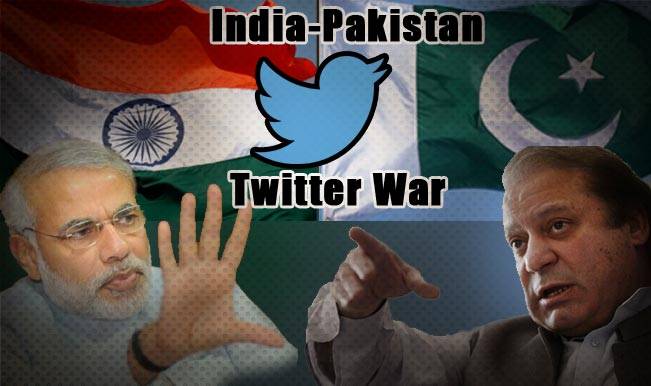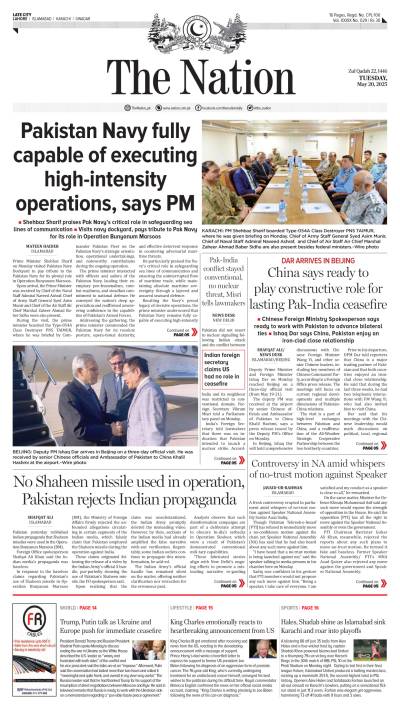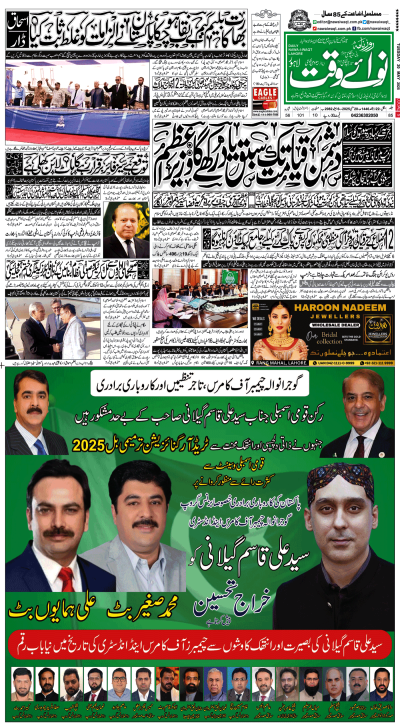I did write extensively on two recent events on social media (Facebook and Twitter) which, I believe, were extremely important regarding Pak-India relations. I felt they needed to be deeply observed and carefully analyzed within the broader context of power politics. One, the “surprise visit” of Prime Minister Narendra Modi to Lahore; second, the attack on Pathankot and India’s immediate response.
Why did Modi visit Nawaz? In Pakistan some argue Modi came to attend a private function arranged by PM Nawaz and his family. Others argue he came here to give a message to the entire international community that he was not as harsh and rigid as he was being portrayed by national and international media.
Modi’s visit definitely played a positive role in bettering the image of India, which it had previously lost after Pakistan provided solid evidence of Indian involvement in Pakistan’s internal affairs (particularly in Karachi and Baluchistan) to the United Nations and to American authorities as well. Even though nothing happened, these evidences put pressure on India and Mr Modi, whose stringent policies were adding fuel to the fire. Modi, in this situation, played wisely and visited Lahore. In doing so he conveyed a message to the world that he was neither against Pakistan, nor disinterested in developing relations with Islamabad. He played the part brilliantly.
Pakistan has been successful in achieving some of the goals regarding elimination of terrorism through Zarb-e-Azb. Both national and international media and security experts have appreciated Pakistan’s efforts in eradicating terrorism. China also found the environment conducive for economic activity in Pakistan and signed CPEC. But India’s blame on Pakistan remained unshaken. Whatsoever Pakistan did, Indian political establishment did not like to recognize any effort. Instead they persistently criticized Pakistan and portrayed it as a safe haven for terrorists on international stage.
Unfortunately for Pakistan, and fortunately for India, the Pathankot incident took place, and things changed. They changed completely. Indian media smartly shaped a new narrative by accusing Pakistan of providing shelter to the terrorists. In the process of narrative shaping, social media was one of the greatest and may be the most effective tool. India also has English TV channels, (which represent India and build its image in the eyes of international community), that played a major role in shaping that strong narrative. Today Pakistan has to accept that “one of the mobile phone numbers linked to those who attacked the Pathankot airbase had been traced to the Jaish-e-Mohammed group’s headquarters in Bahawalpur. Mr. Aziz called the lodging of the FIR in connection with the Pathankot assault a ‘logical and positive step’ in bringing the perpetrators to justice.”
Interestingly, in response Indian defence minister Manohar Parrikar stated, “Pakistan's FIR on Pathankot attack is not enough.”
Do anyone of us remember that after a few minutes who was being blamed by Indian media without any investigation? How did they come to know without any investigation at that time, that the terrorists belonged to Pakistan? It may be not surprising for our Indian friends but it is for us all.
I discussed the two above-mentioned events, what the intention was and which tactics were used in shaping and manipulating public thinking and mass psychology. The point which I want to make is that we need to understand that this is a war that can only be fought through narrative shaping and image building tactics and that we, the Pakistanis, need to learn this tool. The most effective tool of war in modern times is social media. Every battle is being fought through propaganda. Pakistan’s educated youth needs to come out of traditional use of Facebook and Twitter, where they only share selfies, let people know which place or hotel they visited, and express their love for their loved ones.
In the end I want to put some questions for the serious students of Political Science and International Relations to ponder upon: What is reality and how is it constructed? How does it work in the age of Facebook and Twitter? What is the process of manipulation of facts, controlling mass psychology and shaping public opinion in the 21st century? What are the dynamics, sole objectives and orientations of this virtual war? And how can ordinary people play their part in this modern digital war?






